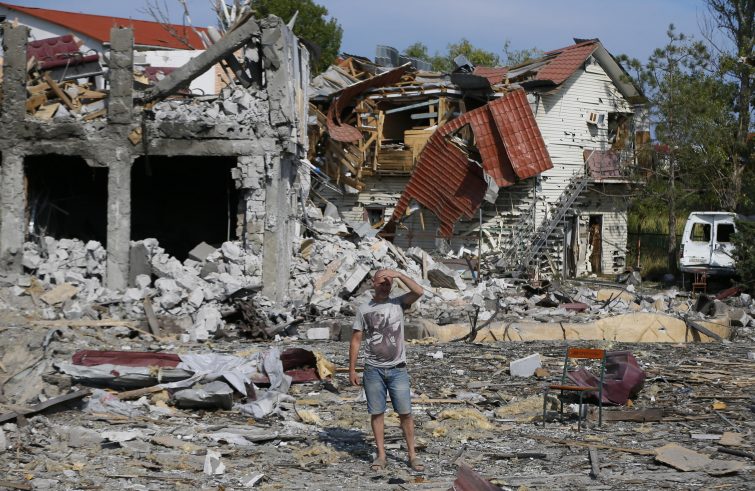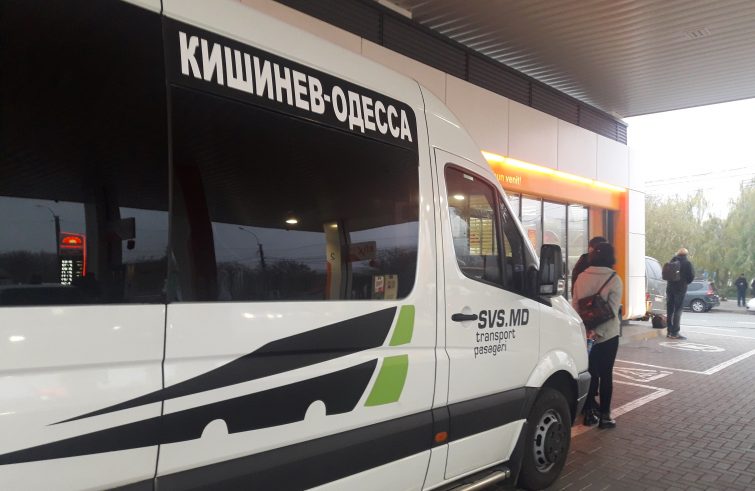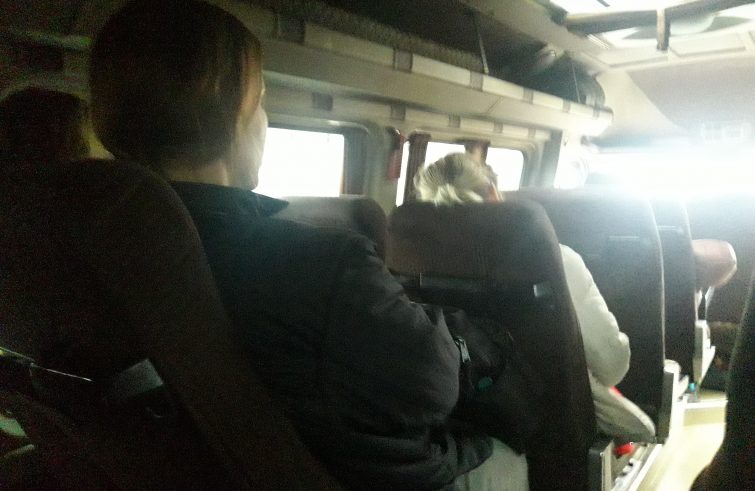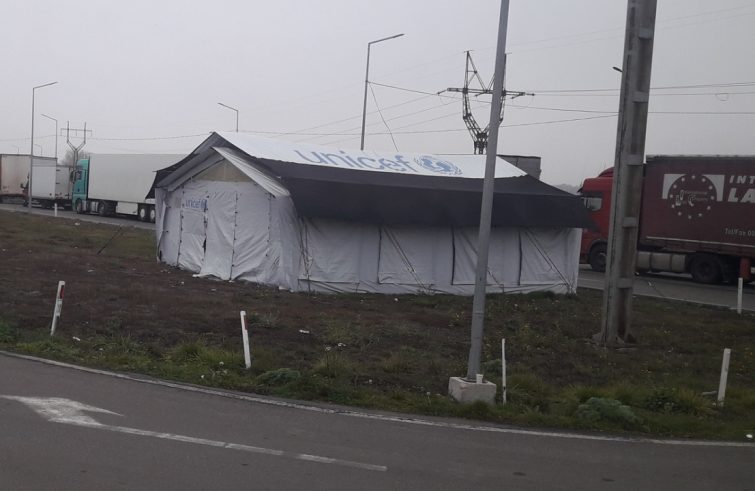
(from Odessa) “No light, no warm.” On the bus from Chisinau to Odessa that is how Natalia, in broken but very clear English, describes the situation in Russia’s most important port city overlooking the Black Sea. She is returning home from a holiday. “It was my birthday and I gave myself a present,” she confides, smiling. She is alone with her two children. The father had to stay home. Men are not allowed outside. Natalia represents that normalcy of life that goes on. “It must endure at all costs,” she says pointing to her children, “despite the war, the warnings, the missiles, the blackouts. It is not easy, in fact it is very difficult. But we have to do it.”
 It was 8 a.m. yesterday when an air siren resounded for more than 3 hours throughout Ukraine. Warning messages also travel via telegram. There are widespread airstrikes across the country. The call is for people to go to shelters. Odessa, Mykolaiv, Kherson, Zaporizhzhia, Donetsk, Lugansk, Kharkiv, Dnepropetrovsk, Poltava, Sumy, Chernihiv, Kirovohrad, Cherkasy, Vinnitsa and Zhytomyr. Kiev Senior Archbishop Sviatoslav Shevchuk also issued an appeal. “I urge everyone not to disregard the rules and air warning signs, to be careful, stay in shelters and do everything you can to save your life and the lives of your loved ones.” By about 11 a.m., the alert was lifted. Authorities report that Ukrainian air defense destroyed six missiles over the Black Sea. The damages are being assessed. In Odessa, Russian troops hit a target, wounded a civilian, and damaged buildings. As the alert is lifted, life in the city continues to flow normally. People walk the streets. Mothers take their children for walks, ladies come out of stores with their shopping bags.
It was 8 a.m. yesterday when an air siren resounded for more than 3 hours throughout Ukraine. Warning messages also travel via telegram. There are widespread airstrikes across the country. The call is for people to go to shelters. Odessa, Mykolaiv, Kherson, Zaporizhzhia, Donetsk, Lugansk, Kharkiv, Dnepropetrovsk, Poltava, Sumy, Chernihiv, Kirovohrad, Cherkasy, Vinnitsa and Zhytomyr. Kiev Senior Archbishop Sviatoslav Shevchuk also issued an appeal. “I urge everyone not to disregard the rules and air warning signs, to be careful, stay in shelters and do everything you can to save your life and the lives of your loved ones.” By about 11 a.m., the alert was lifted. Authorities report that Ukrainian air defense destroyed six missiles over the Black Sea. The damages are being assessed. In Odessa, Russian troops hit a target, wounded a civilian, and damaged buildings. As the alert is lifted, life in the city continues to flow normally. People walk the streets. Mothers take their children for walks, ladies come out of stores with their shopping bags.
That’ s what war is like here: it sways between normalcy and alarm, between life and death.
 It’s not only the bombs that are frightening. Russian attacks also aim to strike at people’s daily lives. It is a strategy. If you want to destroy a people, you don’t just hit them with missiles. You don’t just make them die under the wreckage. You take everything away from them. Water. Food. Lighting. Heating. You hit the Internet and mobile networks, taking away all contact with the rest of the world. About 10,000,000 Ukrainians are without electricity. Even in Odessa, parts of the city have been left without lighting, web and mobile networks. In those neighborhoods, the city is completely engulfed in darkness. Even traffic lights have stopped working due to the lack of electricity. Father Roman Krat, spokesman for the local bishop, admits he does not have much information but
It’s not only the bombs that are frightening. Russian attacks also aim to strike at people’s daily lives. It is a strategy. If you want to destroy a people, you don’t just hit them with missiles. You don’t just make them die under the wreckage. You take everything away from them. Water. Food. Lighting. Heating. You hit the Internet and mobile networks, taking away all contact with the rest of the world. About 10,000,000 Ukrainians are without electricity. Even in Odessa, parts of the city have been left without lighting, web and mobile networks. In those neighborhoods, the city is completely engulfed in darkness. Even traffic lights have stopped working due to the lack of electricity. Father Roman Krat, spokesman for the local bishop, admits he does not have much information but
“such a massive attack on Ukraine is most likely related to the liberation of the city of Kherson and Putin’s need to show the Russians and the big world stage of the G20 that they are still strong and that the game is far from over.”
 After the euphoria over the liberation of Kherson, it is time to take stock of the situation. In effect, the city still remains closed. No one can enter or leave. There are basically three reasons for this, Father Krat explains. There are fears that Russian forces may still be present, and the Ukrainians are searching for them house by house. Moreover, the territory is heavily mined and therefore extremely dangerous. President Volodymyr Zelensky stated on Telegram that since the beginning of the de-occupation, police sappers have already inspected more than 400 hectares of the liberated territories in Kherson and more than 4,000 explosive items have been seized. But the third reason is perhaps the most dramatic aspect of this war. Before leaving, Russia bombed and destroyed “all crucial infrastructure” in the city. As the days go by, there is no end to the horrors that are being uncovered. Ukrainian investigators found an alleged “torture chamber” in Kherson, where dozens of men were reportedly detained, beaten, tortured with electricity and even killed by Russian occupying forces. “For more than a month,” Father Krat recounts, “basic necessities and food could not arrive in Kherson. People did not know what to eat. Fortunately, despite the fact that the region is all mined, in the last few days they managed to bring in supplies of humanitarian aid and thousands of people lined up to receive a piece of bread.
After the euphoria over the liberation of Kherson, it is time to take stock of the situation. In effect, the city still remains closed. No one can enter or leave. There are basically three reasons for this, Father Krat explains. There are fears that Russian forces may still be present, and the Ukrainians are searching for them house by house. Moreover, the territory is heavily mined and therefore extremely dangerous. President Volodymyr Zelensky stated on Telegram that since the beginning of the de-occupation, police sappers have already inspected more than 400 hectares of the liberated territories in Kherson and more than 4,000 explosive items have been seized. But the third reason is perhaps the most dramatic aspect of this war. Before leaving, Russia bombed and destroyed “all crucial infrastructure” in the city. As the days go by, there is no end to the horrors that are being uncovered. Ukrainian investigators found an alleged “torture chamber” in Kherson, where dozens of men were reportedly detained, beaten, tortured with electricity and even killed by Russian occupying forces. “For more than a month,” Father Krat recounts, “basic necessities and food could not arrive in Kherson. People did not know what to eat. Fortunately, despite the fact that the region is all mined, in the last few days they managed to bring in supplies of humanitarian aid and thousands of people lined up to receive a piece of bread.
I call this ‘genocide in a modern form,’ that is, the intentional destruction of a people which, however, is done in an underground way.”









